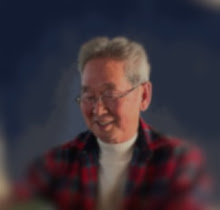イスラエルとハマスの停戦が決まったころ、ガザの報道写真に惹きつけられました。歩いて北部に帰るパレスチナの人たちが写っていました。最初に飛び込んできたのは一面の廃墟の光景です。局所的に破壊された街の様子はこれまで何度も見ていました。しかし今度のような広範囲に破壊された街の様子は初めてでした。こんなにまで破壊されたのか、戦争とはこういうものなのか。破壊の方法は違っても、80年前の広島や長崎を思い出してしまいました。
続いて目にとまったのは、大きな荷物を背負い 北に向かって歩く大勢の人たちです。自分たちが住んでいた家に向かっているのだと想像しますが、辺りの様子から家はたぶん破壊されているでしょう。崩れて瓦礫になった家に住めるのだろうか。想像するだけでも痛々しいですが、それでも帰ろうとするのはなぜでしょうか。ちりぢりになっていた人々が少しずつ戻ってきて、笑ったり悲しんだり、お互い励まし合いながら生活できるコミュニティーがあるからのようなきがします。そんなことを考えさせてくれました。
English: Hope of Gaza
Around the time the Israeli-Hamas ceasefire was announced, I found myself drawn to press photos from Gaza. One image, in particular, stood out—Palestinians walking back to the north. The first thing that came to mind was the sight of abandoned ruins. I had seen images of destroyed streets before, but this was the first time I had witnessed such widespread devastation. Was it truly this obliterated? What does war look like up close? Though the circumstances were different, it reminded me of Hiroshima and Nagasaki 80 years ago.
Next, I noticed the large number of people walking north, carrying heavy luggage on their backs. I imagined they were returning to the homes they once lived in, but from what I could see, those homes had likely been reduced to rubble. Can one even live in a place that has collapsed? The thought alone was painful. And yet, why were they still trying to go home?
It felt as though, despite everything, a community was slowly coming back together. People who had been displaced were returning—bringing with them laughter, sorrow, and resilience—supporting one another as they rebuilt their lives. That thought stayed with me.

